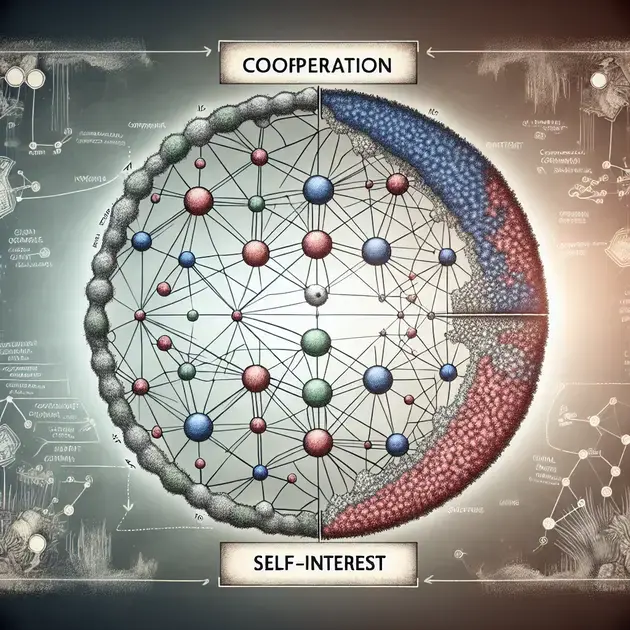“`html
Helping Out Your Neighbor or Minding Your Own Business? A Game Theory Perspective on Cooperation
In our everyday lives, we often face a dilemma: should we help our neighbors and invest in community welfare, or should we focus solely on our personal interests and responsibilities? This choice, seemingly straightforward, is laden with complexities that resonate through social dynamics, economics, and even biology. The study of this dilemma can be illuminated by game theory, which offers a structured way to analyze the interactions and strategies of individuals within a group.
Game theory, a mathematical framework for modeling scenarios in which individuals make decisions that are interdependent, provides significant insights into the benefits and repercussions of choosing between cooperation and self-interest. In many instances, helping a neighbor cultivates a sense of community, leading to reciprocal support that enhances the welfare of the entire network. Conversely, there are moments when pursuing personal interests appears more beneficial, particularly if one perceives that their neighbors will not reciprocate.
Recent advancements in game theory have unveiled novel network structures that promote cooperation within a system. These structures suggest that certain configurations can encourage individuals to collaborate more effectively. Specifically, the introduction of cooperative incentives and the establishment of mechanisms that reward altruism may pave the way for a more cohesive community. By understanding these dynamics, individuals and groups can better navigate the push and pull between communal support and self-interest.
Interestingly, the implications of these findings extend beyond human interactions, reaching into the realm of biology. In natural ecosystems, similar principles apply. For instance, cooperation among species can lead to mutual benefits—such as pollination or symbiotic relationships—that enhance survival and prosperity. By applying game theory to these biological networks, researchers can uncover strategies that promote cooperation among species, contributing to our understanding of biodiversity and ecosystem resilience.
Ultimately, the choice between helping a neighbor or prioritizing one’s own needs is complex and context-dependent. While game theory provides a theoretical lens through which to view these choices, real-world applications require nuanced understanding and empathy. As communities evolve and face new challenges, fostering cooperative behaviors may become even more critical—not only for individual well-being but for the health of the entire ecosystem, whether social or biological.
“`
